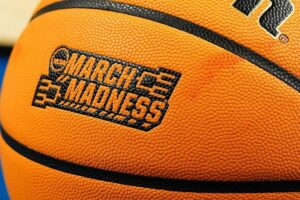Supreme Court Decision That Led to Legal Sports Betting Favored By Majority

It has now been five years since the repeal of the Professional & Amateur Sports Protection Act of 1992, or PASPA, which essentially overturned the federal ban on sports betting across the US.
The dust has had time to settle, and now 38 states (or 39, depending on how you count) have legalized sports betting or have pending legislation to do so in some form.
But what do Americans think of the decision retrospectively? Have people kept the same opinions over that time, or have they changed their stance as legalization sweeps the country? These are some of the questions the American Gaming Association has looked to answer with its new report published this week.
Key Findings
The overwhelming answer is positive for the gaming industry. Some 85% of American adults surveyed by the AGA said that they agree with the repeal of PASPA. That’s up from 63% percent who gave the same answer just one year after the event.
Furthermore, 77% of those surveyed support legal sports betting in their state – whether they currently have it or not.
That market enthusiasm equates to some 39.2 million American adults who have placed a legal sports bet in the past year.
“American adults have always enjoyed betting on sports, and overwhelmingly value the ability to bring their action into a legal market, close to home,” AGA President and CEO Bill Miller said in the report.
Since 2018, more than $220 billion has been wagered on legal sports betting in the US. That overall handle has resulted in $3 billion in taxes paid to local, state, and federal government. And that’s just the handle – the sizeable income tax generated by salaries within the industry, and the businesses benefiting from tourism, are not included in that figure.
Offshore Operators
The report also said that AGA estimates some $64 billion is still spent each year on gray-area offshore sportsbooks in the US.
That’s despite significantly more than half (or about 57%) of Americans living in a fully regulated sports betting state.
However, it seems that this is not so much down to ignorance of the law or legality, as it once was.
In 2018, more than 40% of Americans were unsure of the legality of online sportsbooks in their state. Today, that figure sits at 29%, a 45% improvement in awareness in just five years.
The survey also found 46% of people who currently bet with offshore operators are looking to switch in the next year.
That could be because of improved awareness, but convenience may also be a factor, as more states look to open legal markets. Both Kentucky and Vermont have passed legislation to legalize sports betting, and are looking to launch markets in the next four to eight months.
Maturing Markets
“The regulated industry and our partners across the entire ecosystem—policymakers, law enforcement, regulators, leagues, media, technology providers and more—have made significant strides in our collaborative consumer education efforts since 2018, and we will continue to find new ways to enhance consumer protections as the market matures,” said Miller.
The AGA survey was conducted by Heart+Mind Strategies in March 2024. More than 2,100 American adults were asked various sports betting and gambling questions. Participants were selected on a weighted scale to produce an effective sample range crossing race, gender, and religious groups.











